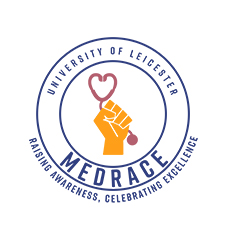College of Life Sciences
Fostering an inclusive learning environment in medical education
Dr Bharathy Kumaravel, Staff, Leicester Medical School
We recently led a workshop for educational and clinical supervisors, where delegates were asked what came to their mind when they heard the phrase “decolonising the curriculum”, their responses reflected a strong and unified call for progress.
Words and phrases like 'diversity', 'equality', and 'inclusivity' featured prominently, alongside a recognition of the importance of increasing awareness and addressing 'casual' racism in medical training. Many saw it as a long overdue and necessary shift—a “need of the time”—to ensure education is reflective of the diverse populations it serves.
 Ultimately, these voices advocate for a wider, more inclusive perspective in postgraduate medical education—one that values different worldviews, challenges bias, and promotes fairness at every level.
Ultimately, these voices advocate for a wider, more inclusive perspective in postgraduate medical education—one that values different worldviews, challenges bias, and promotes fairness at every level.
Participants reflected further and felt one question lingered in the background: “Which communities are we really reaching?”. This suggests that while progress is being made, there’s still more to consider—especially in ensuring that all voices are heard and truly represented in the curriculum reform process.
When asked how they might incorporate lived experiences from marginalised communities into their teaching, consultants offered a range of thoughtful, practical approaches. These included:
- Using diverse case stories and real-life examples
- Introducing a broader range of materials and simulated patients
- Actively encouraging discussions around race, identity, and inequality
- Providing space for individuals from marginalised backgrounds to share their experiences directly
- Building learning around stories, patient narratives, and first-hand voices
- Working in partnership with community leaders
- Encouraging listening, empathy, and sensitivity as core teaching values
- Creating opportunities for trainees to meet and learn from patients of diverse backgrounds
Fostering an inclusive curriculum is a thoughtful review of medical education to make it safer, more equitable, and more relevant for everyone involved. It is not about ticking boxes —It’s about making education relevant, fair, and reflective of the diverse world we serve.
MedRACE students Ayona Dey, Shreya Arun, Gabrielle Caldeira, and Rashmini Peiris acted as facilitators at the workshop, adding their perspectives, identifying barriers and exploring solutions.
October 2025
